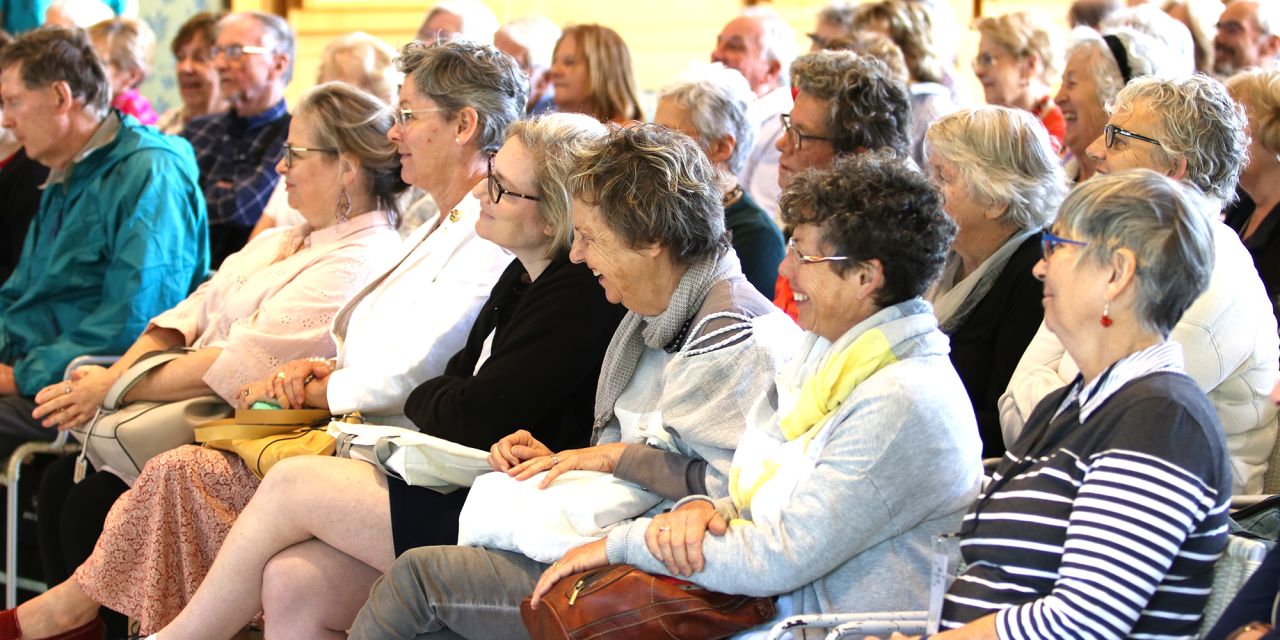Rachel Fry, Artistic Director
The Universal Heart, by Stephanie Dowrick
A practical guide to love! Stephanie Dowrick writes with a depth of love and compassion I’ve rarely encountered. This book is for anyone and everyone, a stellar guide through troubling times, an emotional bible for modern day living. It should be required reading for all teens as they are entering their adult lives, no matter the circumstances playing out in our world.
Jitterbug Perfume, by Tom Robbins
My absolute favourite book. It is intelligent, witty, quirky, irreverent! Everything I need to keep me smiling, to keep me believing humans can create a world of magic in real life, to remember there will be world beyond this crisis that needs reshaping through love and community.
Ella Peile, Programs Manager
The Man Who Mistook His Wife for a Hat, by Oliver Sacks
I have one of my fantastic high school teachers to thank for introducing me to the work of neurologist and writer Oliver Sacks. Neurological disorders may seem a strange topic to carry one through difficult times, but what Sacks offers is a fascinating insight into the multiplicity of human perception and meaning. The patients described in The Man Who Mistook His Wife for a Hat live with neurological impairments which in many cases seem also the source of great talents and philosophical insights. I do not wish to romanticise the suffering that the patients experienced, only to observe that suffering something others do not understand can come also with unexpected strengths. The belief that difference is power and truth is subjective was integral to my experience stepping out from the comfortable world of high school and has shaped me as an artist, a teacher and a person.
Amy Hyslop, CEO
Meditations, by Marcus Aurelius
This small book is a fount of wisdom and a constant source of inspiration to me. Written as a private notebook of philosophical reflections, it's as relevant now as when it was written in 170 AD (approx.). It reflects the stoic perspective and is a guide on how to live a good and purposeful life. Every time I read it I'm challenged and uplifted and I'm reminded of what is important and necessary. My favourite quote - "Dwell on the beauty of life. Watch the stars, and see yourself running with them.”
The Name of the Wind, by Patrick Rothfuss
We need magic and fantasy now more than ever. To me, The Name of the Wind is without peer in its ability to take me out of myself into a world of magnificent scale, tall tales and deep magic. I've read it about twenty times, which is no mean feat given the fact that it's 662 pages long, and every time I feel like I'm setting out on a new adventure. Patrick Rothfuss is an old fashioned storyteller in the tradition of Tolkien and Le Guin, he has that rare ability to enthral, delight and move. My favourite quote - “Words are pale shadows of forgotten names. As names have power, words have power. Words can light fires in the minds of men. Words can wring tears from the hardest hearts.” I cannot wait for the movie!
Dan Seed, Programs Manager
Tree, by David Suzuki
Few books have captivated me quite so profoundly as David Suzuki’s, Tree: A Biography. Recounting the life of a 160-foot tall Douglas-fir on the banks of a lake near Suzuki’s North American cottage, the book moves between hard science and lyrical prose – from the function of mycorrhizal fungi to and the origins of bacterial life post-Big Bang, to the philosophy of our how we consider agriculture, and old-growth forests, and death.
I revisit Tree every couple of years. It gives me perspective. Suzuki’s storytelling highlights the utility of both traditional and social sciences to understanding our world, and our society, and ourselves. He notes in the book, “wherever a seed lands, its fate is sealed … once its first root punctures the soil, the seed is committed to that place on the planet”. As a species, humans have the privilege of choice – our fate is not sealed, and our world, physically and philosophically, is what we make of it.
Stargazing, by Peter Hill
In 1973, Peter Hill left an art degree (in which his performance and attendance, by his own admission, was far from optimal) after responding to an ad in a Scottish newspaper. The job – a summer job as a relief lighthouse keeper. His first posting was at Pladda – an island, off an island, off the coast of southwest Scotland. Moving from posting to posting over the summer, Hill recounts the strange bevy of castaways with whom he guided the safe passage of vessels through sun and fog and pelting rain.
Through music, poetry, TV, and ‘nautical Scrabble’, Hill recounts an experience few have had – even fewer since the automation of lighthouses. This book reminds me that we don’t need to know what we are going to “be”, as is so oft asked in our childhood and into our early adulthood. The path we take at 20 is not the same path we need to be taking at 30, or 40, or beyond, and that focusing too much on a long term vision means I might miss the unexpected shiny things out of the corner of my eye now.
